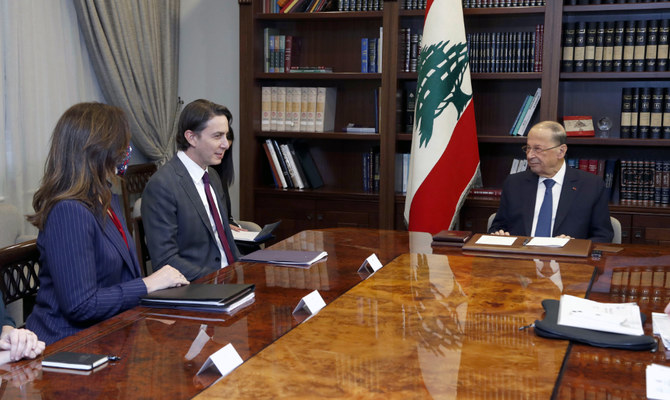
by reuters and arabnews — BEIRUT: Lebanon has submitted to the US a list of changes it would like to see in a proposal on how to delineate a contested maritime border with Israel, a top Lebanese official said on Tuesday. US envoy Amos Hochstein has shuttled between Lebanon and Israel since 2020 to seal a deal that would pave the way for offshore energy exploration and defuse a potential source of conflict between Israel and Iran-backed Lebanese group Hezbollah. Hochstein sent a draft proposal to Beirut last week. It was discussed on Monday by President Michel Aoun, Prime Minister Najib Mikati and Parliament Speaker Nabih Berri. Deputy speaker of parliament Elias Bou Saab said he had earlier that day submitted to the US ambassador in Lebanon the amendments Beirut would like to see, without providing details.
Will maritime-border settlement imply Lebanon’s indirect recognition of Israel?
Young believes that at this stage, Hezbollah does not want to negotiate the entire sea and land border. “The focus now is on the maritime border. I don’t believe there’s willingness to negotiate anything dealing with the contested border, the Shebaa Farms,” he told Arab News, referring to a small strip of land occupied by Israel since 1967. “(But) the UN says the occupation ended with the Israelis’ withdrawal in 2000. The Lebanese position on Shebaa Farms is not the same as that of the Israelis or the UN.”
As for the negotiations over the maritime dispute, Young says if media reports are any guide, the Biden administration has been putting pressure on both Lebanon and Israel and there are signs of progress. “I don’t think we can rule out an agreement,” he told Arab News. “I think all sides have an interest in one and we are moving to a potential agreement.” According to the White House official who spoke to Al-Arabiya, Hochstein is in communication daily with both Israeli and Lebanese government officials.
He said he does not think the proposed changes would derail the deal and that, while the response did not signify approval of the draft, talks were so advanced that “we are done negotiating.” Speaking to local broadcaster LBCI, he said the draft deal had been produced by thinking “outside of the box.” “We started to talk about it as a business deal,” Bou Saab said. The 10-page draft appears to float an arrangement whereby gas would be produced by a company under a Lebanese license in the disputed Qana prospect, with Israel receiving a share of revenues. While that company has been officially named, Lebanese officials have publicly suggested a role for TotalEnergies SE . A top Israeli official was meeting company representatives in Paris on Monday, according to a source briefed on the matter. Bou Saab on Tuesday said that, according to the draft deal, Lebanon had secured all of the maritime blocs it considered its own. He added that Lebanon will not pay one cent from its share of Qana to Israel.



